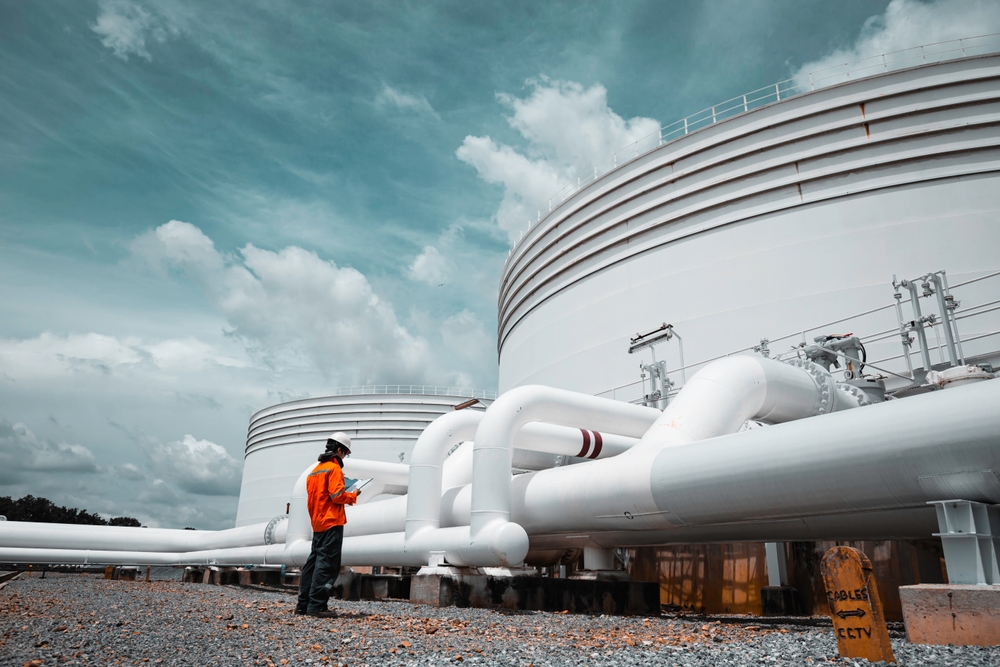
.jpg)
This course examines LNG fuel bunkering and its application on ships, including critical aspects of safety procedures, storage, and management of fuel. The participants will acquire practical skills in the conduct of bunkering operations in a safe manner and in the efficient use of LNG fuel for the gas powered vessels.
| City | Start Date | End Date | Fees | Register | Enquire | Download |
|---|---|---|---|---|---|---|
| Barcelona | 23-06-2025 | 27-06-2025 | 6200 $ | Register | Enquire | |
| Jakarta | 30-06-2025 | 04-07-2025 | 4950 $ | Register | Enquire | |
| Casablanca | 07-07-2025 | 11-07-2025 | 4950 $ | Register | Enquire | |
| London | 14-07-2025 | 18-07-2025 | 6200 $ | Register | Enquire | |
| Amsterdam | 21-07-2025 | 25-07-2025 | 6200 $ | Register | Enquire | |
| Cairo | 28-07-2025 | 01-08-2025 | 3950 $ | Register | Enquire | |
| Manama | 04-08-2025 | 08-08-2025 | 4400 $ | Register | Enquire | |
| Casablanca | 11-08-2025 | 15-08-2025 | 4950 $ | Register | Enquire | |
| Cairo | 18-08-2025 | 22-08-2025 | 3950 $ | Register | Enquire | |
| Dubai | 25-08-2025 | 29-08-2025 | 4300 $ | Register | Enquire | |
| Kuala Lumpur | 01-09-2025 | 05-09-2025 | 4950 $ | Register | Enquire | |
| Casablanca | 08-09-2025 | 12-09-2025 | 4950 $ | Register | Enquire | |
| Istanbul | 15-09-2025 | 19-09-2025 | 4950 $ | Register | Enquire | |
| Amsterdam | 22-09-2025 | 26-09-2025 | 6200 $ | Register | Enquire | |
| Dubai | 06-10-2025 | 10-10-2025 | 4300 $ | Register | Enquire | |
| Amsterdam | 20-10-2025 | 24-10-2025 | 6200 $ | Register | Enquire | |
| Zurich | 27-10-2025 | 31-10-2025 | 5600 $ | Register | Enquire | |
| Kuala Lumpur | 03-11-2025 | 07-11-2025 | 4950 $ | Register | Enquire | |
| Jakarta | 10-11-2025 | 14-11-2025 | 4950 $ | Register | Enquire | |
| Cairo | 24-11-2025 | 28-11-2025 | 3950 $ | Register | Enquire | |
| Paris | 01-12-2025 | 05-12-2025 | 6200 $ | Register | Enquire | |
| London | 08-12-2025 | 12-12-2025 | 6200 $ | Register | Enquire | |
| Milan | 15-12-2025 | 19-12-2025 | 6200 $ | Register | Enquire | |
| Cairo | 22-12-2025 | 26-12-2025 | 3950 $ | Register | Enquire | |
| Madrid | 29-12-2025 | 02-01-2026 | 6200 $ | Register | Enquire |
Monitoring environmental pollution has become a crucial concern for vessel operators, especially with the growing emphasis on reducing air emissions as outlined in MARPOL Annex 6. LNG (Liquefied Natural Gas) has emerged as a potential solution, though it comes with its own set of challenges. This training course focuses on LNG bunkering and fuel management for ships, emphasizing the operational aspects of LNG-powered vessels. Participants will gain an understanding of the IGF Code and how to comply with the regulations governing LNG as bunker fuel.
By the end of this LNG bunkering and fuel management for ships course, participants will be able to:
Unit 1: Definitions of Liquefied Gases and Related Regulations
Unit 2: Health, Safety & Environmental Conflicts and Combustion Principles
Unit 3: Safety in the Handling of LNG Fuels
Unit 4: LNG Bunkering Systems and Operational Management
Unit 5: SIMOPs, Emergency Response, and ESD Systems

.jpg)

.jpg)
.jpg)














